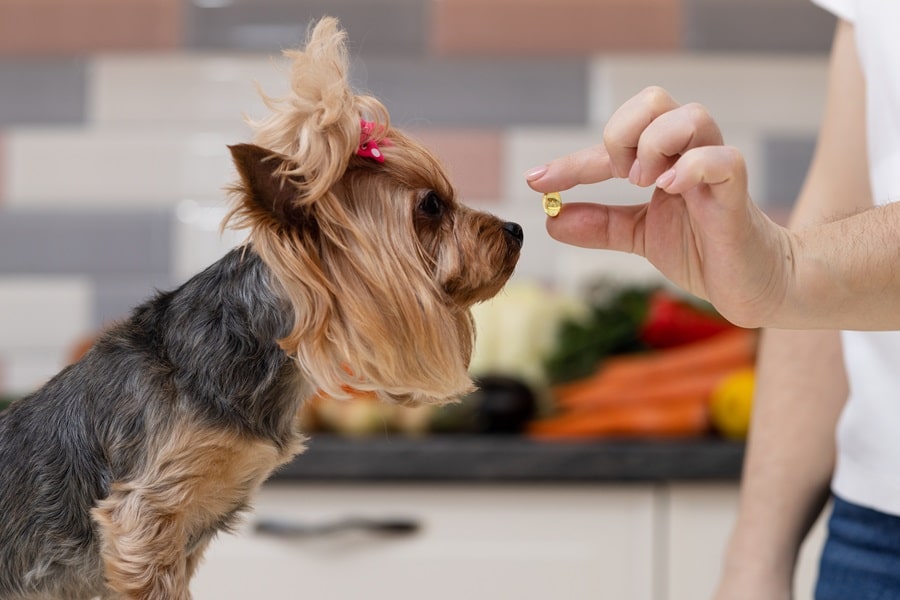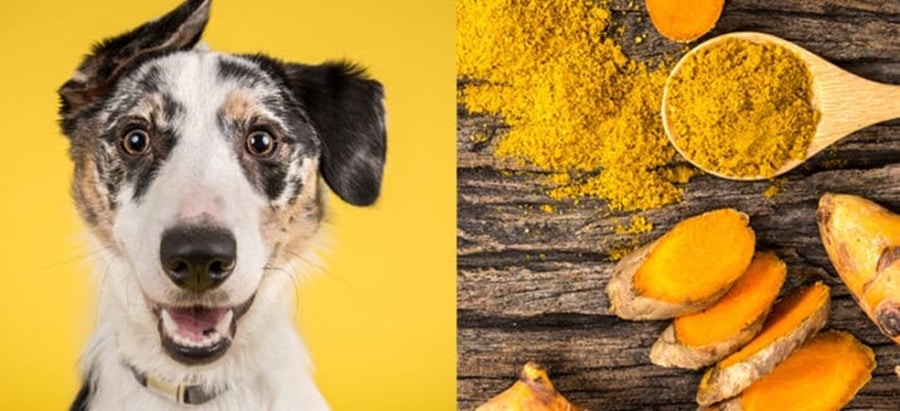No one wants to see their old friend suffer, especially as they age. Unfortunately, just as with humans, dogs too experience a wide range of health problems as they get older. This can be a difficult time for both the dog and its owner, but there are ways to keep your furry friend healthy and comfortable for as long as possible. In this article, we will discuss some tips on how to keep your old pup staying healthy!
Contents
New Bed
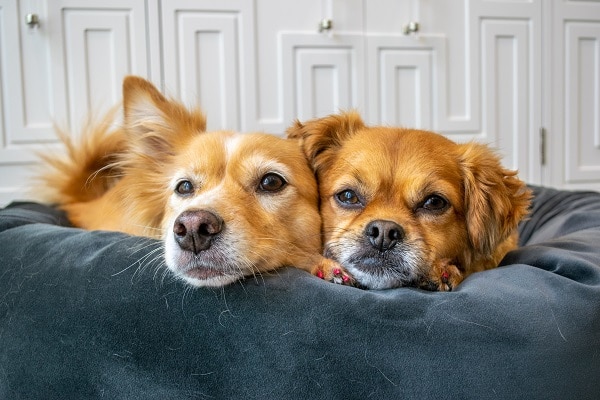
As your dog ages, it will go through many of the same issues that people do, such as arthritis. Dogs become achy as they get older, just like humans, and they deserve the same level of comfort technology. Consider getting them a new bed that is extra-soft or has memory foam if their current one makes them unhappy. Soft upholstery or steps to the sofa or bed are popular choices among dog owners. This makes it simpler for your old dog to climb up to ‘cuddle level.’ This is crucial for dogs with arthritis, as it will help ease their pain and make them more comfortable.
Regular Checkups

All dog owners need to take their furry friends in for regular checkups, but this is especially crucial as your pup gets older. Older dogs are more susceptible to various health problems, so keeping on top of things is vital. Make sure you bring your dog in for their annual vaccinations and blood tests – these can catch any potential health concerns early on and prevent them from becoming more significant issues. Don’t hesitate to call your vet if you notice that your dog isn’t eating or drinking normally, seems lethargic, or has developed any other concerning symptoms. Acting quickly could save your pup’s life.
Weight Management

One of the biggest concerns for older dogs is weight management. As they get older, many dogs start to put on weight, and it can be hard to get it off again. It puts extra strain on their joints and hearts, so keeping them at a healthy weight is crucial. If your dog is starting to gain some pounds, consider cutting back on their food intake slightly and increasing the amount of exercise they get. Taking your pup for walks every day – even if it’s just around the block – will help them stay in shape both physically and mentally. And who knows, you might even enjoy taking a stroll with your old friend!
Brush!
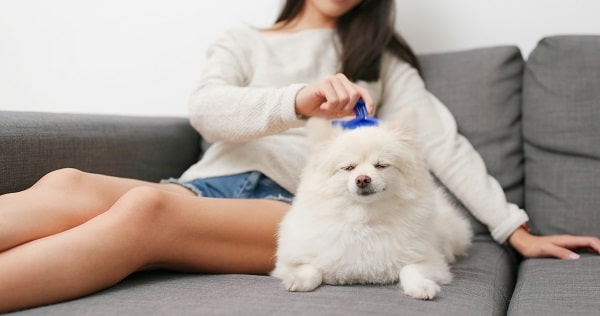
Your elderly dog requires additional physical care at home. To remove any itchy hairs that fall out and ensure their skin is still healthy, you’ll want to brush their coat regularly. Brushing is vital for senior dogs, not just as a method of bonding and spending time together. Dental treatment is also essential for senior dogs’ general health, so be sure their teeth are clean and strong. If your dog is ready for it, give them dental chews or, if not, gently brush their teeth with a soft toothbrush once a week.
Nourishment

Just as with humans, dogs need to eat a healthy diet as they age. A balanced diet is key to keeping your pup solid and healthy. Make sure their food has plenty of protein and omega fatty acids, beneficial for both the heart and joints. If your dog isn’t particularly keen on their current food, try mixing in some wet food with their kibble or giving them treats that are specifically designed for older dogs. There are many different types of senior dog food on the market these days, so finding one that your furry friend loves should be easy.
Spend Plenty Of Time Together
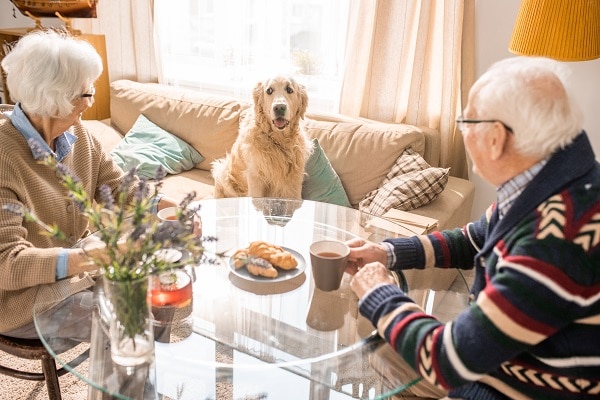
One of the best things you can do for your old dog is to spend plenty of time with them. Go for walks together, play fetch in the backyard, give them lots of belly rubs and cuddles – whatever makes them happy. Dogs are social creatures, and they love nothing more than spending time with their favorite people. As they get older, they may not have the same energy levels as they used to, but that doesn’t mean they don’t still enjoy being around you. Take some time out of your day to tell your old dog how much you appreciate them!
Daily Massages
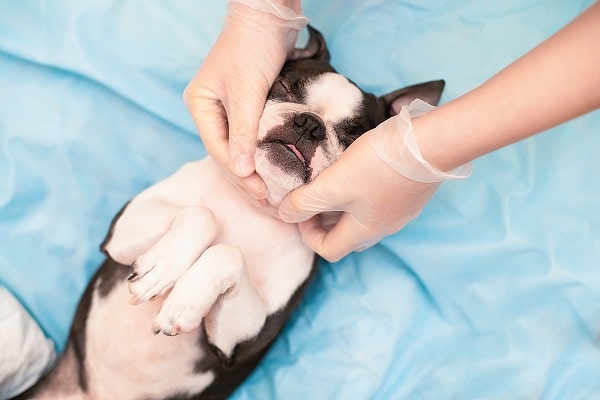
Massage reduces tension and improves muscle function and motion by relaxing tight muscles. Giving your daily dog massages lets him know that you still love him and he’s still important, even if he isn’t as mobile or able to participate in activities with younger household pets. This can be a great way to show your affection and help keep him calm and relaxed.
Consider A Good Harness

When your dog starts to get a bit older, it might be time to start using a good harness instead of relying on the collar. A harness takes some of the pressure off a dog’s neck and spine, which is especially important as they age. It can also be helpful if your pup has arthritis or other joint issues. There are many different types and styles of harnesses available, so take the time to find one that’s most comfortable for your furry friend.
Extra Water

As dogs age, their kidneys don’t work as efficiently as they used to, and they may not drink enough water. This can lead to dehydration, constipation, and other health problems. To combat this, try giving your old pup an extra bowl of water throughout the day and ensuring he always has access to fresh, clean water. Not drinking enough water can also cause your dog to lose his appetite, so if he’s not eating as much as usual, make sure he’s staying hydrated.
Conclusion
There are many things you can do to help keep your old dog healthy and happy. So love them while they’re still with you and show them how much they mean to you! By following these tips, you’ll give your furry friend a good quality of life for as long as possible.
